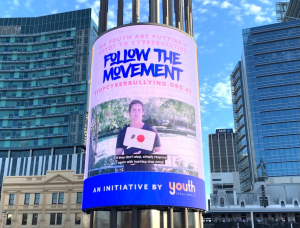25 Aug Bullying and Empathy
|
Getting your Trinity Audio player ready...
|

Bullying continues to have serious and disastrous consequence in the lives of our young people. The West Australian on 25 June ran an article Grieving mums want changes to spare other the pain – calls for reform to end the curse of teen suicide.
The article documents the stories of two young people who took their lives on June 16, 2021, with one of the main contributing factors being the bullying behaviour they experienced.
The cost of bullying behaviour is well documented. In 2018 PwC prepared a report on the cost of bullying in schools. The following is a sample of the sobering reading in this report:
By the time each student cohort has completed its schooling years (generally considered to be 13 years), victims of bullying, perpetrators, their families, schools, and the system will have experienced an estimated $525 million in cost associated with bullying. [1]
The report outlines the mental health costs, the costs of lost productivity and the cost due to lives lost through suicide. However, the economic cost can never quantify the pain of grief for families when children suicide or the pain for families when children cannot reach their full potential because of the impact of bullying.
Bullying costs. It costs young people their lives, it costs young people their mental health, it costs young people their potential. For two years, Youth Legal Services has been raising awareness of bullying, particularly the impact of cyberbullying through its #Stop Campaign.
 Youth Legal Services #STOP Campaign and NOVA 93.7 collaborated to create awareness at Yagan Square in Perth, 2021
Youth Legal Services #STOP Campaign and NOVA 93.7 collaborated to create awareness at Yagan Square in Perth, 2021
Cyberbullying can have a different dynamic from person-to-person bullying because of its anonymous nature and the speed with which information can be spread online. This anonymity has an impact not only on the person who is doing the cyberbullying but also the person who is the victim of the cyberbullying behaviour.
For the young person who is experiencing cyberbullying the anonymity and not knowing who to trust, can lead to greater mental health consequences due to the increased anxiety and the lack of safety. For the person who is perpetrating the cyberbullying, the anonymity means they cannot see the impact of their actions on the other person. Because they are unaware of the impact of their behaviour, they become caught up in what they are doing. The subtle interactions and behaviours that are observed and picked up in face-to-face bullying are not present on-line, hence there is nothing to modify the on-line harassment and cyberbullying the person is doing.
Studies have found, adolescents with low levels of self-esteem and empathy are most likely to engage in cyberbullying. [2] While many bullying and cyberbullying programs deal with the situation after the bullying has occurred, teaching, and developing empathy is important because it acts as a prohibitive factor. Empathy can potentially stopping bullying behaviour from occurring.
What is empathy?
Empathy is the ability to understand the emotions or what another person is feeling as well as to have some experience of what they are feeling. For example, empathy is not just understanding that another young person may be feeling lonely, it is also being able to draw on our own experiences of loneliness and to remember what it felt like for us when we were lonely. In understanding and drawing on our own experiences we gain some understanding of what the other person may be going through.
All of us, as professionals as parents have a responsibility to develop our empathy. We also have a responsibility to teach our young people how to develop their empathy. How do we do this?
- We teach empathy by modelling it. As our young people watch us, and how we demonstrate empathy to others, so they begin to understand its importance.
- Notice when your young people are demonstrating empathy and compliment them.
- When your children and teenagers are talking about their interactions with other young people ask them how they think the other person was feeling. Ask them, about their friend’s facial expressions or body language. In encouraging young people to notice other people’s facial expressions and body language we are assisting them develop empathy.
In encouraging and teaching empathy we can reduce the incidence of bullying and particularly cyberbullying as young people learn to put themselves in the position of the other person and understand the impact of their actions on other young people.
– Written by David Kernohan, Director of Youth Legal Services
